It’s nearly a year since the start of the war in Ukraine and I’m at a family funeral in the UK, when one of my younger family members, who I haven’t seen in a while, pulls me aside.
“Stuart, I know my mum said you were shot in Ukraine, but were you really shot, or did you make it up?” I was genuinely shocked, a little lost for words if I’m honest.
I asked him why he didn’t believe what had happened to me.
“It’s just that online people say it was fake and that you weren’t really shot, and I think they might be right.”
Read the full account of the Sky News team’s violent ambush in Ukraine
Now I’m not naive, I do know there are all sorts of almost comical, wild theories on social media about what “really happened” to me and my team – but I didn’t expect the mistrust from someone so close.
I showed him the bullet wound in my lower back, a scar that’s become so part of me I often forget it’s there, and I wondered whether I needed to show him my life-saving flak jacket with more rounds in it.
I explained to him in detail what happened that day, at the start of the war: how out of nowhere I saw something hit the car and a tyre burst.
How the first round cracked the windscreen, just as producers Martin Vowles and Andrii Lytvynenko managed to get out of our small car, while camera operator Richie Mockler, my producer Dominique van Heerden and I tried to take some kind of cover inside under a hail of bullets.
I described to him how utterly terrified we all were when we came under attack.
I wondered if my death was going to be painful
Bullets cascaded through the whole of the car, tracers, bullet flashes, the windscreen glass, plastic seats, the steering wheel, and the dashboard had disintegrated.
I recalled how I wondered if my death was going to be painful, and how I was then shot. And that I was surprised at how little it hurt.
I then took him through how one by one, we all miraculously managed to get out of the car alive and regrouped at the bottom of an embankment alongside the motorway.
We then hid in a warehouse nearby as a fierce gun battle ensued outside, and a few hours later the police rescued us.
Power of misinformation in Ukraine war
He asked me how we knew for sure it was Russians and not Ukrainians, and I went through the sequence of events in detail again, this time relaying the evidence war crimes investigators have gathered.
I think I sort of got through to him, but I was staggered by the idea that one of my own family members, who has known me all his life, didn’t even believe me.
And that’s the amazing power of misinformation in this war.
As we waited for the invasion to start 12 months ago, it was business as usual in Kyiv.
The day before, I lunched in a cafe and dined in the evening with hundreds of young people in a trendy district, eating burgers and drinking beer.
Many Ukrainians thought talk of war was a Russian bluff.
Foreign governments and journalists on the ground, however, knew that something was brewing; all intelligence pointed to war.
And like the Russian president, Vladimir Putin, most people thought Ukraine would fold in days. The United States, remember, offered Ukrainian President Volodymyr Zelenskyy the “ride” he wouldn’t take. “I need ammunition, not a ride,” he said.
One year on we are here. A year that has changed the future of a nation and the lives of millions of people.
On the morning of day five of the invasion, my producer Dominique called a meeting of the team.
For two of the previous four days we had been stuck in our Kyiv hotel observing a strict curfew imposed by Ukrainian security forces trying to track down so-called Russian “saboteurs” who they claimed were attacking civilians and carrying out acts of terror.
We met in the hotel’s deserted cafe. Just us and the kind, accommodating hotel staff were left.
The team nodded in agreement as Dominique pointed out two fundamentals: we could hear the sounds of war but couldn’t see anything in the city, and we knew civilians were being killed, some even targeted, and needed to somehow tell that story.
Knowing you need to go see to get to the facts is all well and good, actually doing it in a newly developing conflict where the only thing you can say for certain is that you have absolutely no idea what is going on, raises a fair amount of concern about the danger.
A town synonymous with death
We elected to travel to Bucha, a town of no real significance at the time. It has of course since become synonymous with death.
We had contacts who said some initial fighting had calmed down, but that there were casualties and the remnants of a Russian armoured convoy that had been destroyed.
Dozens of checkpoints and many hours of travelling later we were nearing the town, but worryingly we could see Russian helicopter gunships crisscrossing the battlefield a few kilometres ahead of us.
Ukrainian soldiers said the fighting had intensified and had no idea where the front line was anymore which made going forward treacherous at best, suicidal more likely.
It was late afternoon, so we called it a day and turned around to head back to Kyiv – and that’s when it all went so badly wrong, and we were attacked.
Three months later, after my surgery and recovery, we returned to Ukraine.
We met with officers from the Bucha Police Department who told us how they were forced to hide or evacuate from the immediate area as Russian tanks and soldiers took over their positions along the same road.
Russian forces were in the process of taking the towns of Bucha and Irpin, both just a few kilometres off the M06 highway, in a maelstrom of airborne rocket attacks, artillery, tanks, and infantry.
Campaign of indiscriminate destruction
They say from the end of February, through the first week of March last year, units within the Russian army began to kill and terrorise the population. Civilians attempting to flee assumed they could evacuate along the main road, but neither they nor the police realised that the front line had shifted and Russians had by now deployed there.
Tanks, armoured vehicles and soldiers were hidden amongst the trees that line the motorway and civilians couldn’t see them before it was too late.
Over these days they waged a campaign of indiscriminate destruction of buildings and infrastructure – and they murdered civilians for no apparent reason.
Those early days of the war were brutal because of attacks like these on civilians, the taking over and pillaging of towns and the widespread human rights abuses and war crimes.
It’s now morphed into an equally brutal, but more indiscriminate war of attrition.
The two armies are shelling each other with heavy weapons, and there are high military casualties, but there are far fewer civilians left to harm.
Read more:
The Russian region with high casualties where an army contract is big money
What would Russian success mean for Western security?
Grief-stricken Ukrainians still determined after a year of war
I’ve covered the Russian action, takeover and annexation of parts of Ukraine since it started in earnest in 2014.
In the early days, I was in the east and south of the country based in Donetsk and Crimea, on the “Russian side”, so to speak.
Remember the “little green men” in Crimea and the tank battalions in Debeltseve? They were excused by Moscow as soldiers on their holidays… with their tanks of course.
It was the most extraordinary example of state misinformation and disinformation.
It was and is cynical, bogus, and incredibly successful – and it carries on today.
Over the last nine years, and especially the last year, we have met hundreds of courageous Ukrainians who are somehow managing to survive.
In parts of the east, we have also met people who identify as Russian, not Ukrainian, and their voices are important too. They have shown us equal respect.
We can continue to report what we see on the ground and what people tell us about their lives, in many ways, there is little more we can do for them. In some ways perhaps telling their stories helps.
Click to subscribe to the Sky News Daily wherever you get your podcasts
Ukraine, despite what President Putin says, is its own country, and its people are standing defiant.
One day there will be questions to ask, and punishments delivered, but we are far from that point.
In truth, we’re still on the first draft of this modern Ukrainian story. A story we will continue to tell.
Stuart’s report was put together with senior foreign producer Dominique van Heerden.

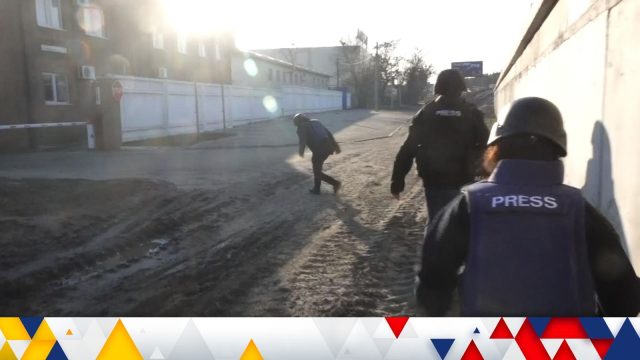



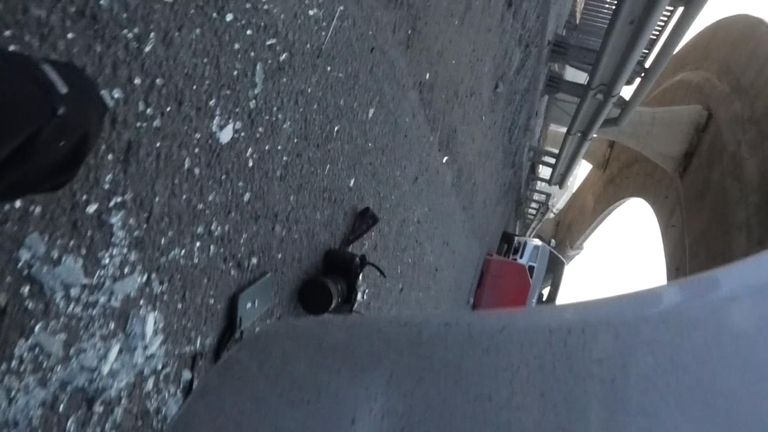
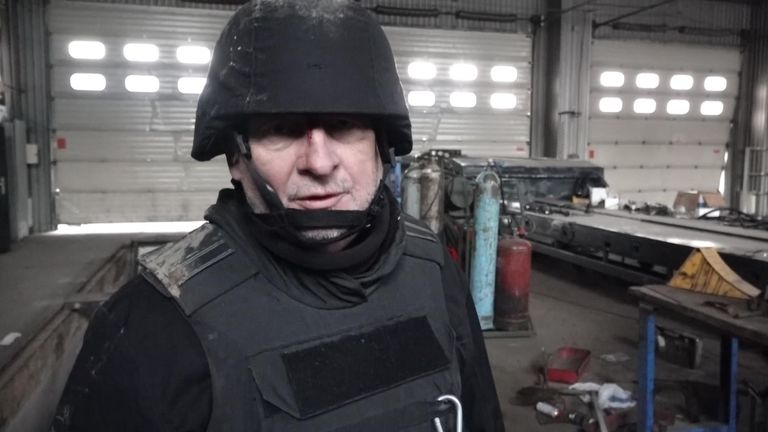
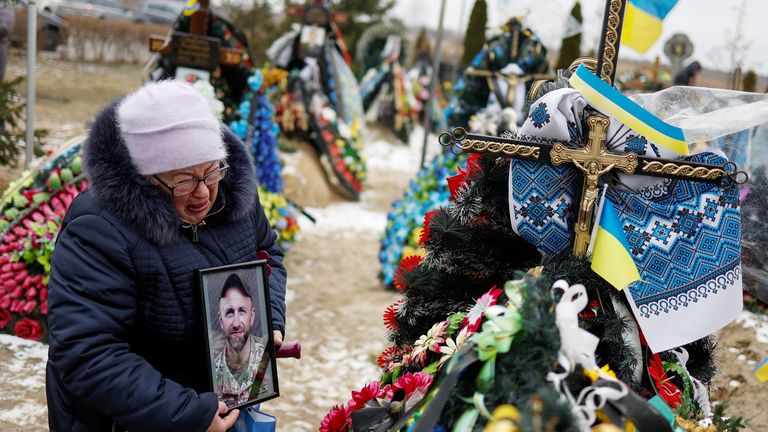
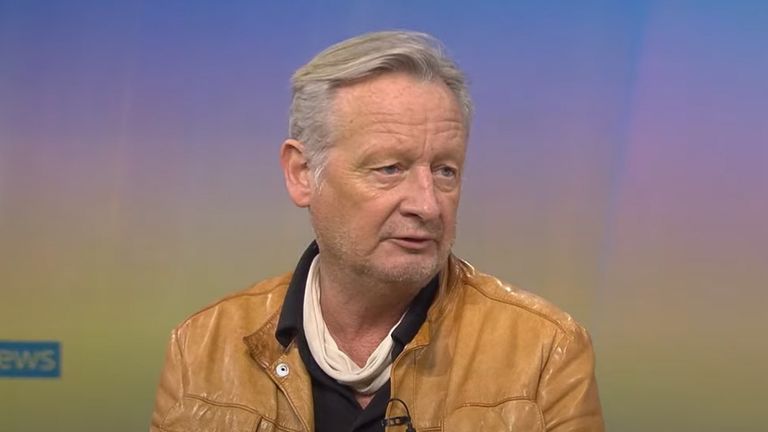
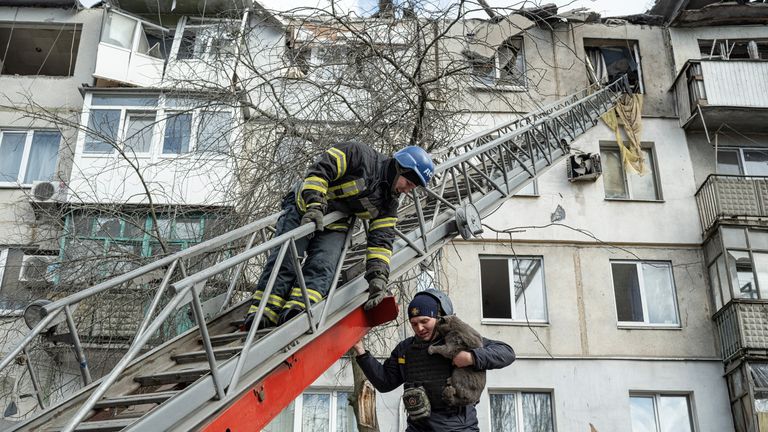






![Fuse ODG violently handcuffed, dragged out of his car by UK Police over alleged ‘Wee’ smell [Video]](https://ghananewss.com/storage/2023/05/Fuse-ODG-hand-100x75.jpeg)








